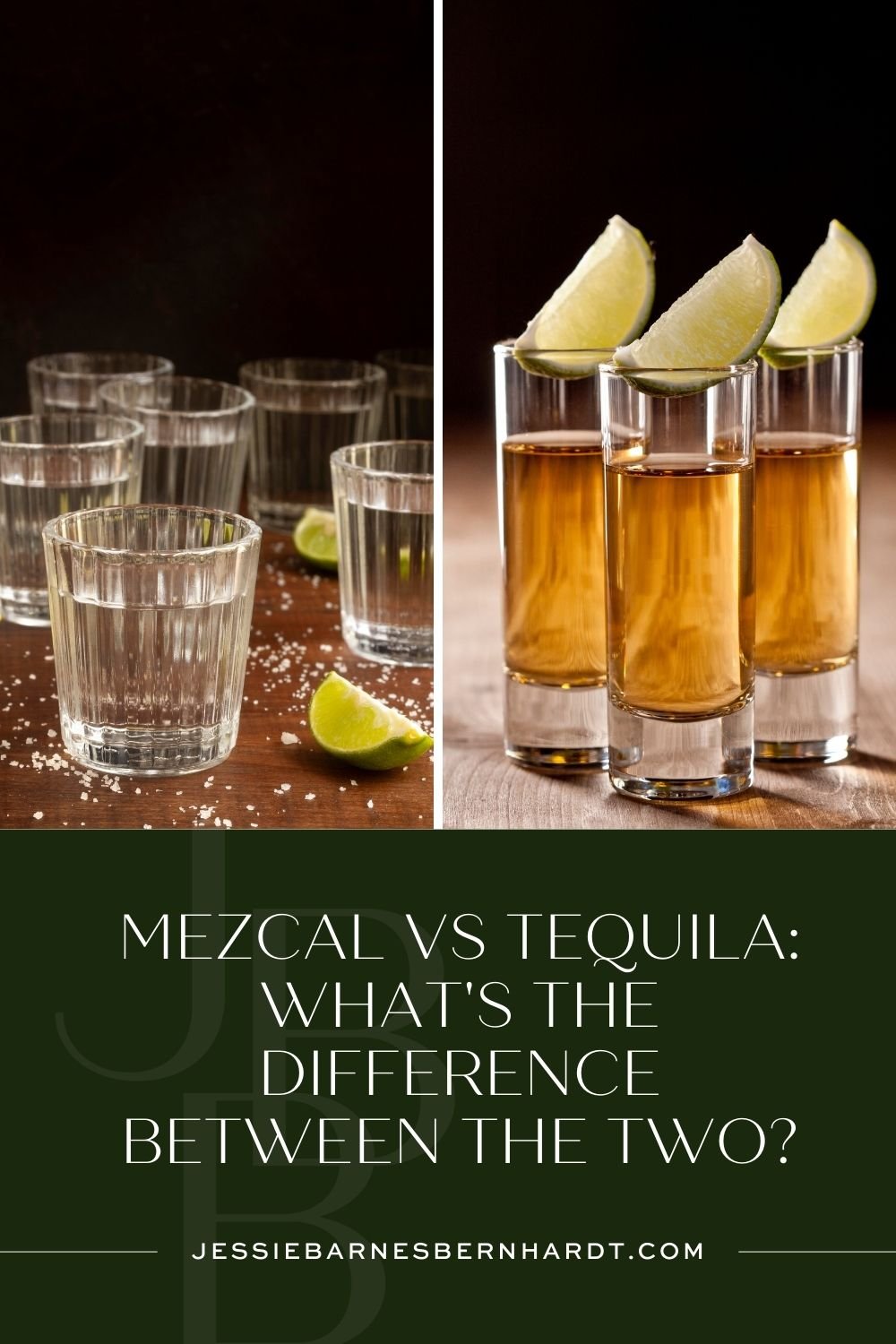Mezcal vs Tequila: What's The Difference Between The Two?
As a lover of cocktails, I have always been intrigued by the vast world of spirits. I get asked a lot about two popular agave-based spirits: Mezcal and Tequila.
At first glance, Mezcal and Tequila may seem similar, but as you delve deeper into their production processes and flavor profiles, you realize that there are significant differences between the two. In this blog post, I will break down the key differences between Mezcal and Tequila, from their production methods to their taste and everything in between.
What are Mezcal and Tequila?
Before we dive into the differences between Mezcal and Tequila, let's first understand what these two alcoholic beverages actually are. Both Mezcal and Tequila are types of agave spirits, meaning they are distilled from the agave plant. The agave plant is a succulent plant native to Mexico and is known for its long, spiky leaves.
Mezcal and Tequila are both made from the blue agave plant, also known as Agave tequilana Weber, but they are produced in different Mexican states. Mezcal is mainly produced in the states of Oaxaca, Guerrero, Durango, San Luis Potosí, Zacatecas, and Guanajuato, while Tequila is primarily produced in the state of Jalisco.
Key Differences between Mezcal and Tequila
1. Production Methods
The production methods of Mezcal and Tequila are perhaps the biggest difference between the two. Mezcal is made through a traditional process, using underground pits to cook the agave hearts, also known as piñas. The piñas are cooked in these pits, which are lined with volcanic rock and filled with hot rocks. This gives Mezcal its signature smoky flavor.
On the other hand, Tequila is produced in above-ground ovens, using brick or clay ovens to cook the agave piñas. This results in a more earthy flavor in Tequila. Additionally, Tequila can only be made from the blue weber agave plant, while Mezcal can be made from a variety of agave species.
2. Aging Process
Another key difference between Mezcal and Tequila is the aging process. Mezcal is traditionally aged in wooden barrels, which can be made from a variety of woods, including oak, pine, and cedar. The length of aging can vary, but most Mezcal is aged for at least a few months, with some varieties aged for several years.
Tequila, on the other hand, has a more regulated aging process. According to Mexican law, Tequila can only be aged in oak barrels, and the aging must take place in the town of Tequila or select areas in the states of Guanajuato, Michoacán, Nayarit, and Tamaulipas. Tequila can be aged for different lengths of time, resulting in different types of Tequila such as Blanco (unaged), Reposado (aged for 2-12 months), Añejo (aged for 1-3 years), and Extra Añejo (aged for over 3 years).
3. Flavor Profile
One of the most significant differences between Mezcal and Tequila is their flavor profiles. Mezcal is known for its smoky flavor, which comes from the cooking process using hot rocks in underground pits. This results in a rich and complex flavor, with earthy notes and a hint of sweetness. Mezcal also has a higher alcohol content, typically ranging from 40-55%.
Tequila, on the other hand, has a more subtle flavor profile. The above-ground cooking process results in a more earthy and herbaceous taste, with hints of tropical fruits and black pepper. Tequila also has a lower alcohol content, typically ranging from 35-55%.
4. Production Processes
The production processes of Mezcal and Tequila also differ significantly. Mezcal is traditionally produced in small batches by independent producers, using traditional methods passed down through generations. The process is labor-intensive and can take up to 15 years from planting the agave to bottling the final product.
On the other hand, Tequila has a more commercial production process. Most Tequila is produced in large, industrial distilleries, and the agave is harvested after 6-8 years. The production process is also more regulated by the Mexican government and the Consejo Regulador del Tequila (Tequila Regulatory Council).
5. Types of Tequila and Mezcal
There are different types of Tequila and Mezcal, which contribute to the overall differences between the two. As mentioned earlier, Tequila can be aged for different lengths of time, resulting in Blanco, Reposado, Añejo, and Extra Añejo Tequila. Each type has a different flavor profile, with the aging process adding depth and complexity to the final product.
Mezcal, on the other hand, is divided into two categories: Mezcal de Tequila and Mezcal de Oaxaca. Mezcal de Tequila is made only from the blue agave plant, while Mezcal de Oaxaca can be made from different varieties of agave. Mezcal de Oaxaca also has subcategories, such as Tobalá, Arroqueño, and Espadín, which refer to the type of agave used in the production.
The History of Mezcal and Tequila
Both Mezcal and Tequila have a long history in Mexico, dating back to the pre-Hispanic era. Mezcal has been produced in Mexico for centuries, with the first known production dating back to the 16th century. It was initially produced by the indigenous Zapotec and Mixtec communities, who used it for ceremonial purposes.
Tequila, on the other hand, has a more recent history. It is believed that Tequila was first produced in the 16th century by the Aztecs, but it wasn't until the 1800s that commercial production of Tequila began. The town of Tequila, located in the Mexican state of Jalisco, is considered the birthplace of Tequila.
In the early 20th century, Don Cenobio Sauza, also known as the father of Tequila, revolutionized the production of Tequila by introducing steam-powered ovens and copper pots for distillation. This modernization played a significant role in the commercial success of Tequila.
In recent years, both Mezcal and Tequila have gained popularity in the United States and other parts of the world, with the demand for high-quality agave spirits increasing.
The Consejo Regulador del Tequila and Consejo Regulador del Mezcal
Another key distinction between Mezcal and Tequila is the governing bodies responsible for regulating their production and quality. The Consejo Regulador del Tequila (Tequila Regulatory Council) was established in 1994 to regulate and promote the production of Tequila. They oversee the entire production process, from the cultivation of agave to the bottling of the final product.
Similarly, the Consejo Regulador del Mezcal (Mezcal Regulatory Council) was created in 1997 to regulate and promote the production of Mezcal. However, their role is not as extensive as the Consejo Regulador del Tequila, as Mezcal production is more traditional and less commercialized.
Mezcal vs Tequila: Which One Should You Choose?
Now that we have discussed the key differences between Mezcal and Tequila, the question remains: which one should you choose? The short answer is that it depends on your personal preference. Both Mezcal and Tequila have unique flavor profiles and production processes, making them distinctive in their own ways.
If you enjoy a smoky, complex flavor, then Mezcal may be the ideal choice for you. On the other hand, if you prefer a more subtle and earthy taste, then Tequila might be the way to go. If you're new to agave spirits, I recommend trying both Mezcal and Tequila to see which one suits your taste buds better.
The main difference between Mezcal and Tequila is their production methods and flavor profiles. Mezcal is traditionally produced in small batches using underground pits, resulting in a smoky flavor, while Tequila is commercially produced in above-ground ovens, resulting in a more earthy taste.
The history and governing bodies responsible for regulating Mezcal and Tequila also contribute to their differences. Mezcal has a long, traditional history, while Tequila has undergone modernization and commercialization in recent years.
Ultimately, both Mezcal and Tequila are unique and delicious Mexican spirits with a long history and cultural significance. So next time you're browsing the liquor store, don't hesitate to try out a bottle of Mezcal or Tequila and experience their distinct flavors for yourself. Cheers!





















If you love pumpkin spice as much as I do, you’ll love this list of the best pumpkin flavored coffees for fall!